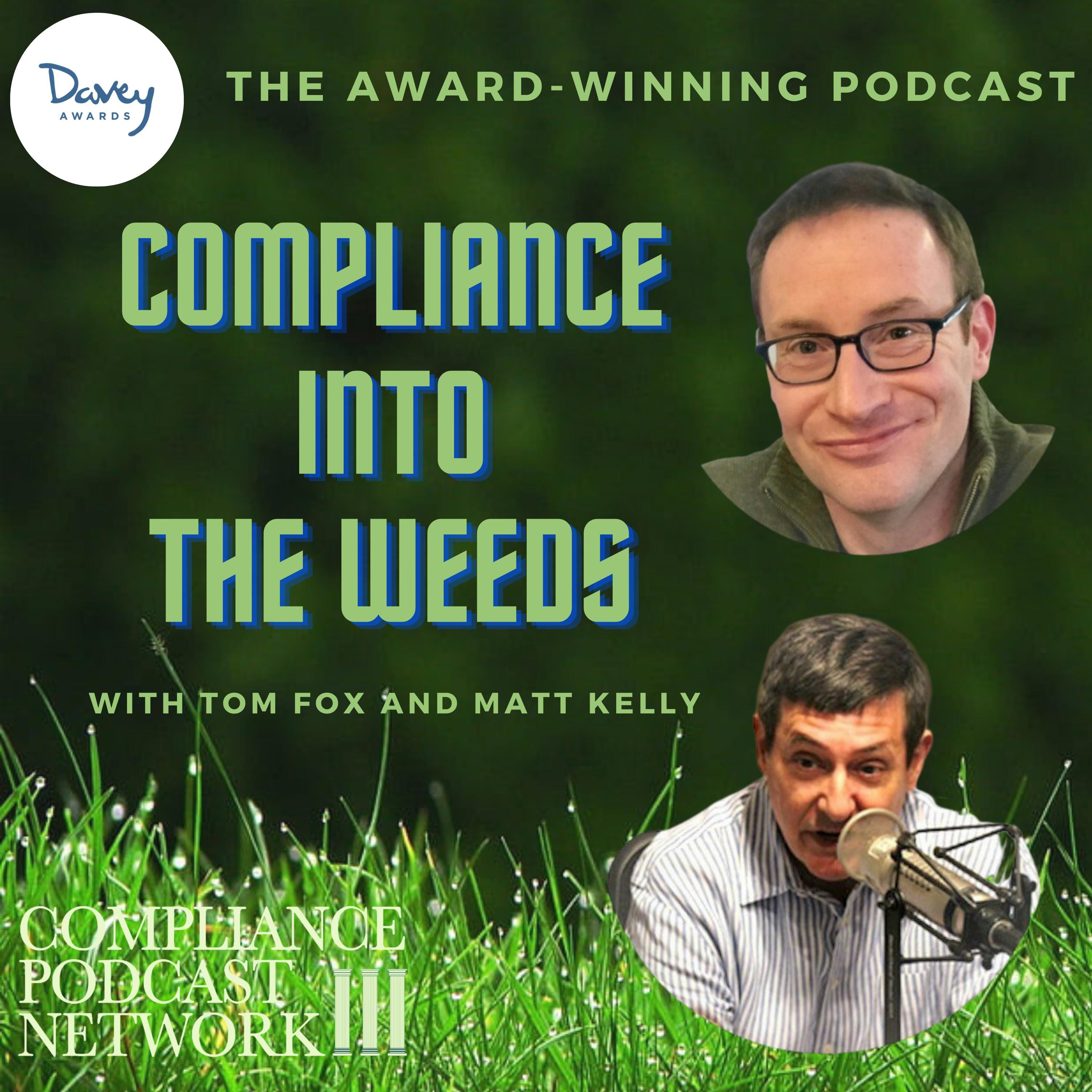

Compliance into the Weeds
Tom Fox
What happens when two compliance aficionados get together to talk all things compliance, risk management and ERM? You get Tom Fox, the Voice of Compliance and Matt Kelly, the Coolest Guy in Compliance, going into the weeds of a topic each week. Each week, you can take a deep dive with two of the top writers, thinkers and prognosticators in compliance.
Episodes
Mentioned books

Jan 10, 2018 • 20min
Compliance into the Weeds-Episode 65
In this episode Matt Kelly and I take deep dive into the issue of non-GAAP metrics and its implications. We were inspired an article in this quarter's MIT Sloan Management Review entitled, "The Pitfalls of Non-GAAP Metrics". It is fascinating review of this topic, which "Lurking within the financial statements and communications of public companies is a troubling trend. Alternative metrics, once used sparingly, have become increasingly ubiquitous and more detached from reality." Learn more about your ad choices. Visit megaphone.fm/adchoices

Jan 3, 2018 • 25min
Compliance into the Weeds-Episode 64
In this episode, Matt Kelly and I take a look at some of the more intriguing issues in compliance and ethics, FCPA and greater GRC issues in the new year of 2018. Learn more about your ad choices. Visit megaphone.fm/adchoices

Nov 14, 2017 • 20min
Compliance into the Weeds-Episode 60
In this podcast, we consider the joint role of a GC-CCO and the potential corporate governance issues involved when the roles are held by one person. Does this create an irreconcilable conflict? What are the different functions of the General Counsel and the Chief Compliance Officer. Learn more about your ad choices. Visit megaphone.fm/adchoices

Nov 8, 2017 • 21min
Compliance into the Weeds-Episode 59
What will be the fate of the Justice Department's Evaluation of Corporate Compliance Programs going forward under the Sessions Department of Justice. Learn more about your ad choices. Visit megaphone.fm/adchoices

Nov 1, 2017 • 25min
Compliance into the Weeds-Episode 58
In this episode, Matt Kelly and I take a deep dive into the scandal around Harvey Weinstein. We consider it from the compliance perspective, both programatic and for the CCO. We consider the different types of harassment which comes may face claims of from the fallout. We also consider the Board response by The Weinstein Company board and for the claims involving Bill O'Reilly. Learn more about your ad choices. Visit megaphone.fm/adchoices

Oct 3, 2017 • 24min
Compliance into the Weeds-Episode 56
In this episode, Matt Kelly and I take a deep dive into an article by Todd Haugh, in the most recent issue of the MIT Sloan Management Review entitled, “The Trouble With Corporate Compliance Programs” that even best practices compliance program fail to take into account behavioral best practices and one important but too often overlooked key to strengthening both individual and overall corporate behavior is eliminating rationalizations. Learn more about your ad choices. Visit megaphone.fm/adchoices

Sep 26, 2017 • 25min
Compliance into the Weeds-Episode 55
The Telia FCPA enforcement action is the Number 1 all-time for fines and penalties. What can you learn from it? Learn more about your ad choices. Visit megaphone.fm/adchoices

Sep 20, 2017 • 21min
Compliance into the Weeds-Episode 54
Matt reports live from TEC 2017, the Workiva user summit Learn more about your ad choices. Visit megaphone.fm/adchoices

Sep 6, 2017 • 19min
Compliance into the Weeds-Episode 52
In this episode, Matt Kelly and I take a deep dive into the good, bad and ugly of Hurricane Harvey for the compliance professional. We discuss what lessons may be drawn from the storm and its aftermath for the greater compliance, ERM and business communities and the need to take a much greater holistic approach to the consideration of your risk management strategy. Learn more about your ad choices. Visit megaphone.fm/adchoices

Aug 23, 2017 • 26min
Compliance into the Weeds-Episode 51
What is the intersection of the PCAOB, auditing and compliance? Matt Kelly and I explore in this week's episode. Learn more about your ad choices. Visit megaphone.fm/adchoices


